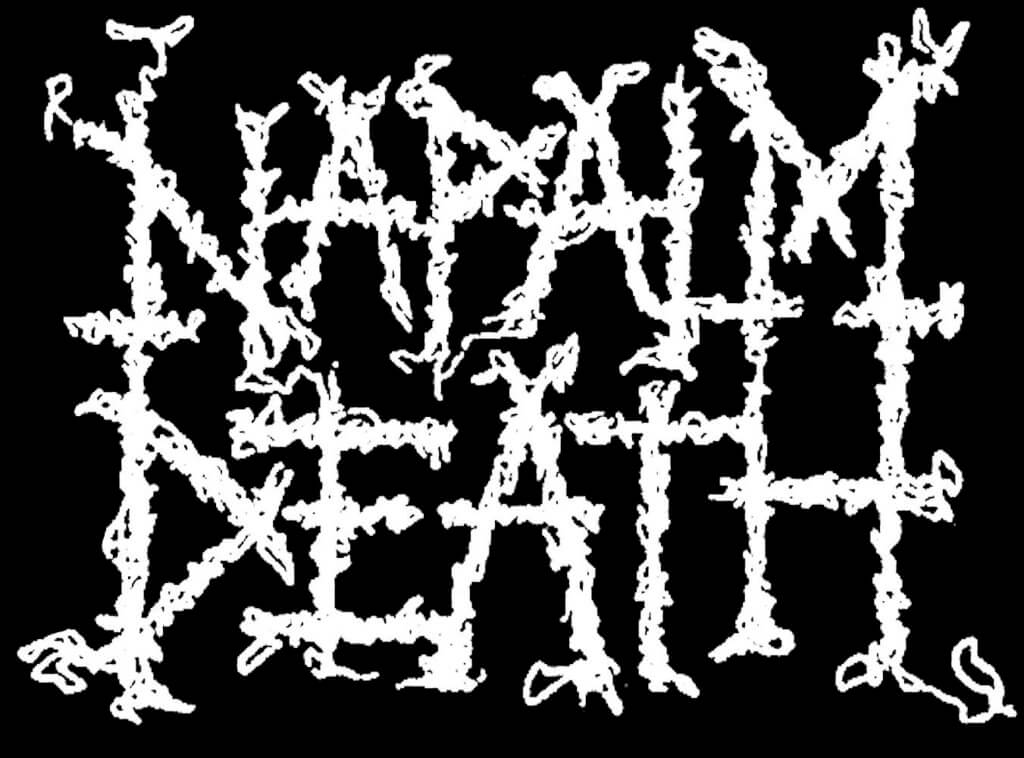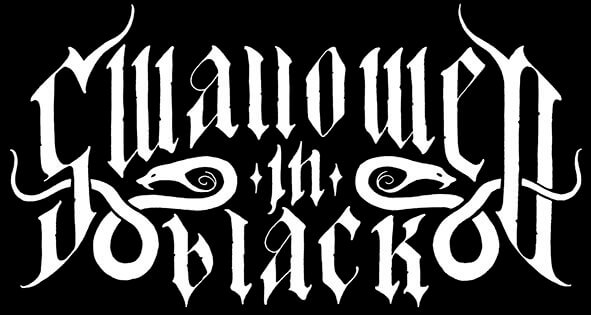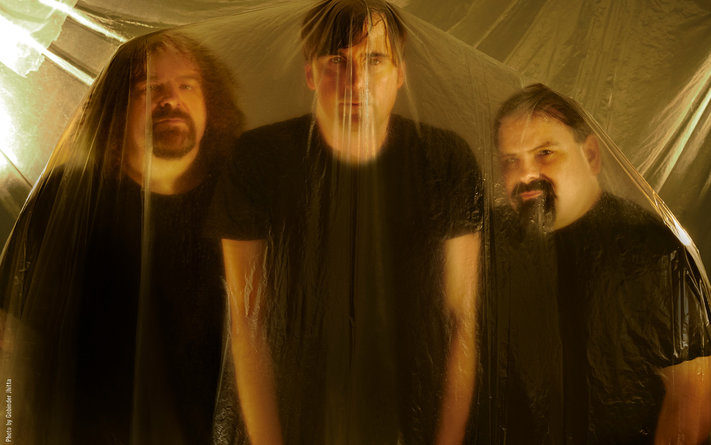“SIGNIFICANT PORTIONS OF POPULATIONS AROUND THE WORLD HAVE BEEN CONDITIONED TO THINK THAT THEIR PATCH OF LAND IS THEIR PATCH OF LAND” – BARNEY GREENWAY
Paradoxically pairing some of the most vitriolic, abrasive and confrontational music on the face of this godforsaken planet with profoundly intelligent, socially conscious and humane lyrics, Napalm Death have been raging tirelessly against injustice and inequality for the best part of four decades, providing a powerful protesting voice to those effectively enslaved by oppression, poverty, ignorance and lack of privilege. To tie in with the imminent arrival of their diverse 16th full-length, ‘Throes Of Joy In The Jaws Of Defeatism’, I Skyped deep-thinking, dissenting frontman Mark ‘Barney’ Greenway to discuss – among other things – kicking against the system, the unequal distribution of wealth, breaking down borders, skewed government policies and the long-lost art of simply behaving like human beings.
 One of the things about Napalm Death that has really impressed me over the decades, going back 30 years or more, is the resilience and endurance of the band, not just musically – with aggressive, confrontational music – but also the manner in which you keep coming back to the battle front, standing up for the underdog, fighting the fight and offering resistance against so many of the wrongs in the world. It’s wholly impressive and admirable and I wonder where this energy, strength and fortitude comes from?
One of the things about Napalm Death that has really impressed me over the decades, going back 30 years or more, is the resilience and endurance of the band, not just musically – with aggressive, confrontational music – but also the manner in which you keep coming back to the battle front, standing up for the underdog, fighting the fight and offering resistance against so many of the wrongs in the world. It’s wholly impressive and admirable and I wonder where this energy, strength and fortitude comes from?
“Thanks for the kind words. I’d say it’s actually really simple. You know, it’s a very simple thing: it’s just that I feel – we feel – that we understand what it is to be a human being and therefore the way we assess situations, the way we react to them, is just ‘treat other people as you would expect to be treated’. Obviously, it’s more complex than that but that’s the fundamental of it.”
Like a sense of decency shining through…
“…well, I wouldn’t even call it that. I think you have to be careful with this stuff about putting a moral perspective on it because that suggests that one person’s thing is greater than the next, but it’s not. The very bottom line is that I consider myself a human being, I’m sure you do too, and it’s like part of being a human being is the act of humanity … it’s acting with people, interacting with people and physical actions within life should be conducive to preserving humanity. Unfortunately, I think that’s been lost for one thing and I think also generally we have failed to recognise the lessons since time immemorial: the need to treat human beings better – and other sentient beings as well, actually, not just human beings.”
Napalm Death have been raging against inequality and injustice for so long, going back to the first song on the first album, ‘Multinational Corporations’, and that situation still prevails today where these multinational corporations are wreaking havoc. I know on more recent albums you are critical of a vast array of parties including, off the top of my head, landlords and sweatshops and now you are back with ‘Throes Of Joy In The Jaws Of Defeatism’ where you have some new targets in your cross hairs. It feels that things never seem to change?
“You know what, very often when I do interviews – and certainly for this album – people will say ‘oh hasn’t the world become a shit place in the last three or four years’ but it’s always been shit. On the other side of things, it’s also been great and it has some very bright spots and some very encouraging things for the future, but there’s always an undercurrent of shit flowing through. There really is, so certainly for my role in Napalm there’s always something there not only for material but that has a certain urgency and that I feel needs to be put out exposed and put onto the table as whatever the idea is around it.”

With the new 16th full-length album about to come out, I’m sure you never could have predicted in your wildest dreams that it would be released into such a volatile and strange time. Fear, emptiness and despair is what has been filling society for the past six months and it’s just such an astonishing time, isn’t it?
“The thing is that, on a personal level, I’ve dealt with this thing pretty well because I live alone for one thing, that always helps, because you’ve only got yourself to look out for and deal with on the immediate domestic level, so for me it’s been not too bad, but I know that people have got dependents or families or stuff like that and I know it’s been pretty rough, but from my own side of things I’ve always lived very simply anyway and I don’t need a lot of stuff or detritus around me to have an enjoyable life really so I’ve made a few adjustments here and there, made things even more simple, so for me it’s not been a problem. But obviously that’s not necessarily the point; the point is that this thing is very fucking real. Luckily I’ve not had anybody in my family back in Birmingham who have contracted it or succumbed to it or anything like that, but I do know people and I’ve seen that it’s no fucking joke because if you get it you don’t know how it’s going to be – it could be very mild or it could be the other end of the spectrum.”
Certainly not something to make little of. From my point of view – you’ve probably picked up on this yourself – but one of the things that really irked me and pissed me off at the beginning when the lockdowns arrived was this unexpected social divide that suddenly came from government directives everywhere, where they differentiated between essential workers and so-called non-essential workers and had different rules for each. To me, that was sending out a signal that 40-50% of the population are non-essential, what you do every day is non-essential, your life is non-essential, stay at home, the rest of us are really important and we’re going to go out and keep everything moving – everyone else, fuck off and stay out of our way because what you’re doing isn’t important. I think that was typical of the arrogant, bullying behaviour of those in power. I know they possibly meant well in everything they were doing or trying to do but there was also an element of yet again choosing sides and going with the haves against the have-nots…
“I agree. I’m always loathe to give this government any credit really at all, you know, I shouldn’t say that I suppose but I think their intention to protect NHS health workers was actually very fucking surprising knowing the Tory government but, like you say, I agree, I think they had the best intentions … but to then discard a huge percentage of the population with ‘this is how it is and we are going to throw you a few crumbs, but after that tough shit’, I really thought that was quite reprehensible. And it comes down to redistribution of wealth and resources again, because I’ve always had this thing about distribution of means of wealth and resources in this world being so skewed. If that was to happen as I would like it to happen and as I’m assuming you would like it to happen, people wouldn’t need to worry about their whole very existence.”
 This pandemic is obviously terrible on so many levels but for me the biggest pandemic right now is poverty. Governments don’t care about poverty for some reason, they don’t care about socio-economic deprivation and this is what’s directly causing poor health and welfare, suppressed immune systems, distress, depression and it’s killing more people over a longer period of time. People who can’t get on the ladder or get ahead in life because they are fighting a losing battle from the beginning…
This pandemic is obviously terrible on so many levels but for me the biggest pandemic right now is poverty. Governments don’t care about poverty for some reason, they don’t care about socio-economic deprivation and this is what’s directly causing poor health and welfare, suppressed immune systems, distress, depression and it’s killing more people over a longer period of time. People who can’t get on the ladder or get ahead in life because they are fighting a losing battle from the beginning…
“The thing is, this is where politics gets basically thrown in the bin for me because unless it can help the whole population, not just a few, then it becomes meaningless, it becomes just tokenism. You’re totally right in that, for example, this Tory government will do little things here and there, ‘look at us, we’re of the people’ but they’re not addressing the conditions causing these problems. Those things they do last for five minutes, they’re always time-restricted as well, you’ll generally find, so they don’t deal with the hundred-times-worse situations underneath that. You’re totally right – unless you’ve got the ways and the means, you’re in the same boat and it doesn’t matter what little fairy dust they sprinkle on top because it’s not going to make that much difference.
“There was a really interesting programme on the BBC, actually, a couple of weeks ago, about Manchester, about the developments and the property boom in Manchester and what interested me was you had this guy who was a multi-millionaire, must have been near a billionaire property developer, but he had a social aspect to it so he would say like ‘yeah, well, like, you know, I’ll do my best with my foundation to increase the number of affordable housing’ but okay, fine, but really the greater thing that he was doing beyond that was just buying up all the old properties and on the reverse of the coin he was actually lessening the social housing provision in the city. So again it was like a bit of tokenism on top and then this huge thing on the other side of it that was completely counter-productive. It was a really interesting programme and the amount of people that were on there who were native Mancunians that had always lived around the Salford area but were being forced further and further out because of course when you have private developments in a city it then drives up even the rent on the social housing stock or the Housing Association stock as well.”
You probably noticed as well with the furlough scheme they came out with in the UK, which they produced like a rabbit from the hat, it was great obviously but also remarkable that they pulled billions out of nowhere and before that there had been thousands upon thousands of homeless people, so much social deprivation and poverty, so many people clearly in need of financial help and yet those billions were never pulled out to assist them. They jump to the aid of middle-class people but never do it for those on or below the breadline…
“You have to ask yourself, if the billions are there to be called upon in these special circumstances, why can’t they be called upon in everyday time-frames and it does make you wonder.”
I watched the brilliant video for ‘A Bellyful Of Salt And Spleen’ and it reminded me of when myself and my wife were in Belgium last year and we were coming back to our hotel one night, in the early hours of the morning actually, walking up one of the main shopping thoroughfares in Brussels when out of nowhere we heard a baby’s cry right beside us pierce the shrill night air. There was a baby crying on the street at 1am! It was in behind temporary barricades, where there were whole communities of refugees, families with babies sleeping on the streets in the cold.
“Well, obviously I’m quite the global traveller with the band and I’ve seen tent cities in the last few years in places where I never thought I’d see ‘em – and it’s getting more and more and more and more. And of course it will come to the point where there will be so much of this that authorities will try and like regulate them or clamp down on them or whichever way you term it and there’ll be so much of it they’ll just have to let it be because there’ll be no alternative. And, again, I think it comes down to taking a serious look at the distribution of wealth, power and resources in this world because it’s like that … if you have, you are there and if you don’t you are down there.”
The disassociation and lack of empathy the video conveys, with people on the beach taking selfies, oblivious to the bodies washing up beside them on the shore, it’s actually like that in real life. People are desensitised and they don’t seem to think these are humans. That was a human baby we heard. It wasn’t a fucking alien or something. I went to bed wondering would that baby live though the night. Nobody gives a fuck.
“Yeah, totally, 100%. People are desensitised. They just walk straight past, you know what I mean, and they just, they’ll think for a minute and they’ll go ‘oh, that’s terrible’ and then they’ll just walk on by. And in all fairness that kind of individual is not to blame. I think we should be a little bit careful about that … what’s to blame is the system. It’s the system, that’s the thing that needs to change because it’s too disproportionate. The access to a reasonably trouble-free life where you know where you next meal is coming from, where you know that you can walk onto the street and not be almost killed for whatever reason, is too far out of reach for so many people. The disparity between the two things – those who have and those who don’t – is huge.”
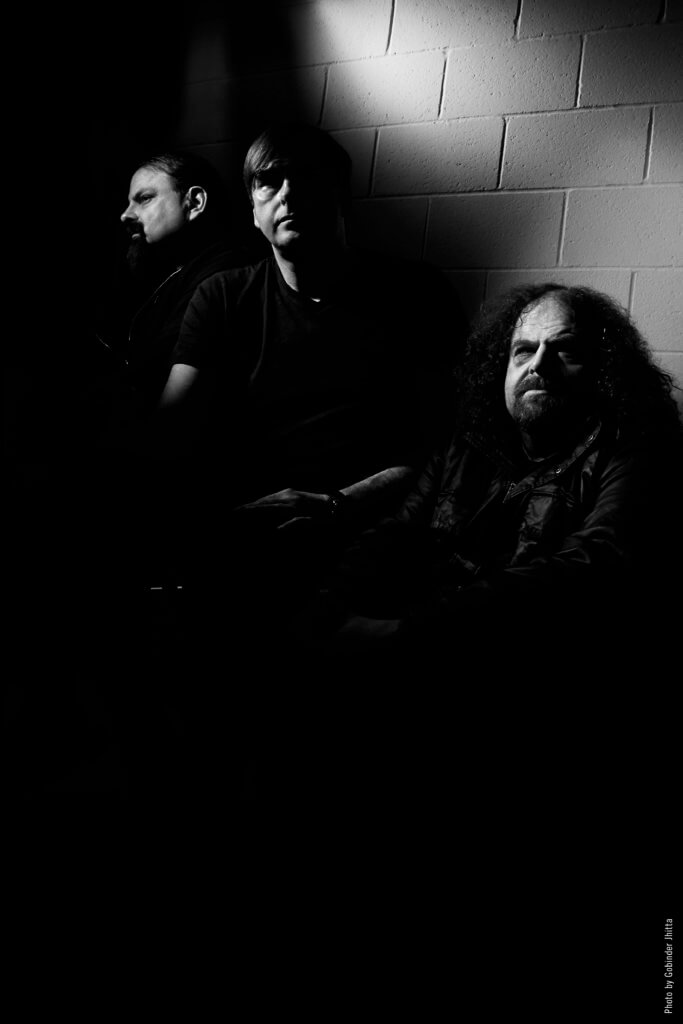
I know you are really unhappy with the treatment of humans at borders, who are being treated worse than animals, like invaders, as they try to move from one place to another. The inhumanity of man towards his fellow man is outrageous and this is yet another example of that, I’m sure you agree?
“Yeah, unfortunately, significant portions of populations around the world have been conditioned to think that their patch of land is their patch of land and anything that comes into that or changes the dynamic or whatever is to be repelled or cast out and hence the inhuman treatment. But I think, with regards to borders, borders were put there in the first place to serve the interests again of those with the power and those with the resources because they protected those in one particular place. This whole thing about borders protecting people on the ground, the common man or woman, is simply a smokescreen, it just doesn’t have any bearing on the reality of the situation. We wouldn’t even have a world to live in if people hadn’t migrated across the continents, which weren’t even recognised as continents then as there was no separation, and people settled on the land that best suited their life aspirations in terms of what they could do with the land, so there is an argument to say that borders are an anachronism and that there had to be a better way: to basically take down the borders and understand that a redistribution of land as well as the wealth, the power and the resources that we talked about is probably a better prospect. If people want a peaceful existence amongst peoples, to me it sounds like a better outlook going forward.”
We have to believe that there can be an equal society somewhere down the line but …
…you don’t stop believing because if you apply that to Napalm people say to me ‘oh well, you do all this stuff and things don’t seem to get better’ and my reply to that is ‘yeah, but what should we do – stop putting the ideas out there, stop doing what we do?’. Of course, we’re a band and we are an entertainment vehicle as well in conjunction with the ideas but there are a million different entities other than Napalm Death also trying to make some kind of difference and you don’t just stop because if you stop you let the forces that wish to maintain the status quo and allow no change, to keep things as they are, they just win every time, so it’s not for people like us to give up. If life is worth anything as a human being, you persevere.”
It’s worth remembering that, as you mentioned there, first and foremost Napalm Death is a band and, even though I get very interested in the social commentary and the politics, which is certainly a huge part of what Napalm Death is all about, the music cannot be forgotten, obviously.
“The two go hand in hand with one another, so absolutely, 100%.”
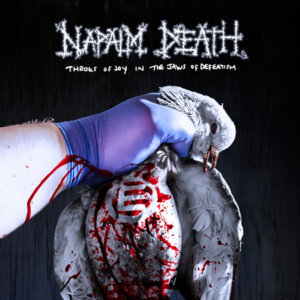 Listening to the new album I did notice that there are four particularly experimental songs – namely ‘Joie De Ne Pas Vivre’, ‘Invigorating Clutch’, ‘Amoral’ and the aforementioned ‘A Bellyful Of Salt And Spleen’ – by the standard of what I would have expected at least, although I know you have experimented in the past and I also read in the accompanying press release that some of these are nodding to the early pre-‘Scum’ demos, which I have never heard.
Listening to the new album I did notice that there are four particularly experimental songs – namely ‘Joie De Ne Pas Vivre’, ‘Invigorating Clutch’, ‘Amoral’ and the aforementioned ‘A Bellyful Of Salt And Spleen’ – by the standard of what I would have expected at least, although I know you have experimented in the past and I also read in the accompanying press release that some of these are nodding to the early pre-‘Scum’ demos, which I have never heard.
“Aw, you should check the demos out. They are on YouTube as far as I know and, yeah, the demos are great. Obviously way before my time in Napalm Death, but they are really good. That’s the thing, I knew Napalm, I knew the guys, before the ‘Scum’ album and I could see then as an outsider that, you know what, there’s something special about this band. Yes, there were a lot of other noisy, punky, experimental, different-things bands around at that time – it was a very fertile time – but Napalm Death just seemed to have a little extra something, one of them things you can’t always put into words. I just knew even as an outsider at that point that there was something about this band that was going to be pretty special in the future.”
And it’s still there because with this intangible whatever-it-is, Napalm Death has endured and thrived and in my opinion keeps getting better. ‘Utilitarian’ absolutely blew me away and then ‘Apex Predator –Easy Meat’ and the new album are also incredible.
“See, there’s also this side to it as well: Napalm is a very spontaneous band in a lot of ways, we’re not a box-ticking exercise, we’re not like ‘we must hit this point, this point, this point and then we’ve achieved whatever’. It’s very vibrant, very spontaneous, the whole creation of things, so in effect we do what we do and if it sticks it sticks; if it doesn’t, it doesn’t, you know that’s the risk you take. Napalm Death is definitely a band that lives and dies by its own decisions internally. We don’t rely on other people outside to tell us what to do. Sure, we’ll listen to perspectives, listen to opinions – you should because it’ll perhaps give you an enhanced view of things – but essentially we live and die by our own decisions. If something doesn’t stick then at least we can say that it was under our own steam that we did what we did.”
 Did you find it a particular challenge personally to deal with the wide range of vocals required on ‘Throes Of Joy In The Jaws Of Defeatism’? On some of those more experimental songs you have shown yourself to be extremely versatile – how much of a challenge was that?
Did you find it a particular challenge personally to deal with the wide range of vocals required on ‘Throes Of Joy In The Jaws Of Defeatism’? On some of those more experimental songs you have shown yourself to be extremely versatile – how much of a challenge was that?
“I appreciate that, thank you. I dealt with each track as it came. It was actually me that took the tracks and said ‘this is what I’m going to do’. And I’ve never been afraid to do stuff, but with experience and with playing with things vocally down the years you naturally become more confident with various things. I’ve never been afraid to tackle something, even if it wasn’t my choice, for example if Shane said to me in the studio ‘why don’t you try this vocal?’ and it was a few steps up from what I’ve done, I wouldn’t be afraid to try it, fuck it I’d do it as long as it still sounds abrasive, confrontational, perhaps a little bit avant garde or something like that then I’m all for it. But there are many different points of extremity on the sonic spectrum, there’s not just one or two, there’s many different things you can do.”
The energy remains seemingly boundless. You’re 51 now – you look about half of that – and you come across as being especially fresh, energetic and primed to keep going with this, hopefully get back gigging soon and bring that raw energy of Napalm Death back out to the public?
“Of course, I’m very critical and I’m cynical about quite a few things, many of which we’ve spoken about in the interview, but I’ve also got a positivity about me. I revel in the very simple things in life, which is something we actually did on a Napalm album fucking years ago, actually, it was a central theme, but I think the simplicities of life sometimes are lost. And they shouldn’t be. Sometimes going to a park and sitting underneath a tree and watching the world go by can be a really fucking fulfilling thing. I still maintain that and, you know, some days that’s all I want to do and I take a lot from that kind of situation.”
